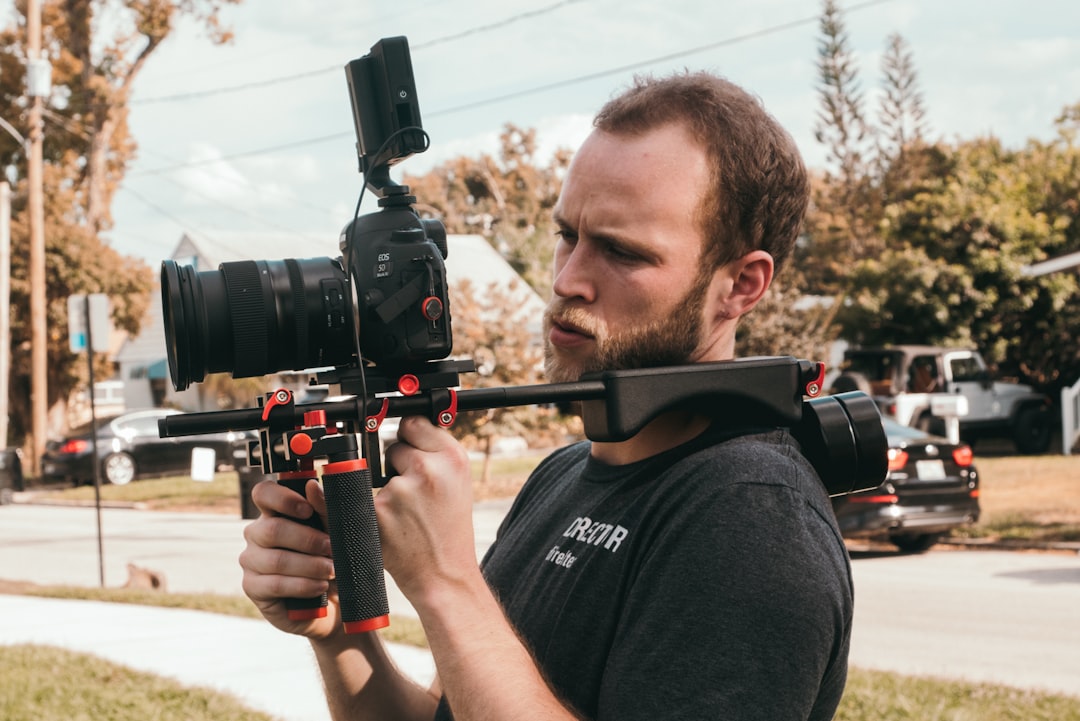Film/Television Camera Operator Kaitango Whakaahua Whitiāhua/Pouaka Whakaata
Film and television camera operators use digital and film cameras to record events and scenes for television, movies and videos.
Film/television camera operators may do some or all of the following:
- carry and set up cameras and equipment such as lighting rigs and kits
- work with and follow the instructions of the director
- operate cameras to film or record the action
- keep the camera in focus.
Directors of photography may do some or all of the following:
- study scripts and interpret how scenes should look
- select suitable cameras and equipment
- decide on the location of cameras and lights
- direct camera and lighting crew during filming
- work with the director and editor during editing.
Physical Requirements
Film/television camera operators need to have a good level of fitness as they stand for extended periods and carry heavy camera equipment. They also need to have good hearing and normal colour vision.
Useful Experience
Useful experience for film/television camera operators includes:
- photography
- working for a production company
- filmmaking
- video or television work.
Personal Qualities
Film/television camera operators need to be:
- able to work well under pressure
- good at problem solving
- patient
- efficient and reliable
- good communicators with strong people skills.
Skills
Film/television camera operators need to have:
- technical skills for operating film and video cameras
- up-to-date knowledge of filming methods and equipment
- knowledge of camera exposure, focus, colour and lighting
- understanding of the filming and editing process.
Conditions
Film/television camera operators:
- usually work 10-hour days, and may need to work evenings and weekends and be on call
- work in television and film studios, or outdoors on location, where they work in most weather conditions
- may travel to a wide range of locations in New Zealand and overseas.
Subject Recommendations
There are no specific secondary education requirements to become a film or television camera operator. However, English, maths, media studies, digital technologies, drama and photography are useful.
Film/Television Camera Operators can earn around $30-$50 per hour.
Pay for film/television camera operators varies depending on experience and the type of production they are working on.
Recommended pay rates (based on 10-hour days) for camera operators on New Zealand feature films and television series:
- Video split operators, clapper/loaders and second assistants usually earn between $30 and $50 an hour.
- First assistants/focus pullers usually earn between $55 and $66 an hour.
- Experienced camera operators can earn between $64 and $120 an hour.
Pay rates for directors of photography are negotiable.
Source: The Screen Industry Guild of Aotearoa New Zealand, 2018.
Film/television camera operators usually specialise in working in either film or television in a number of roles, including:
- Second Assistant
- Second assistants process the shot footage or data and carry and set up gear such as lighting rigs.
- First Assistant/Focus Puller
- First assistants or focus pullers are in charge of the camera equipment and making sure the focus is correct.
- Digital Imaging Technician
- Digital imaging technicians are responsible for image quality control, on-set colour correction, and workflow (making sure footage is processed and gets where it needs to be) when a production uses digital cameras.
- Director of Photography
- Directors of photography organise production camera crews and make artistic and technical decisions about how scenes are shot.
Years Of Training
There are no specific entry requirements to become a film/television camera operator. However, a relevant tertiary qualification in film, television or video production is useful.

 Ashburton College
Ashburton College